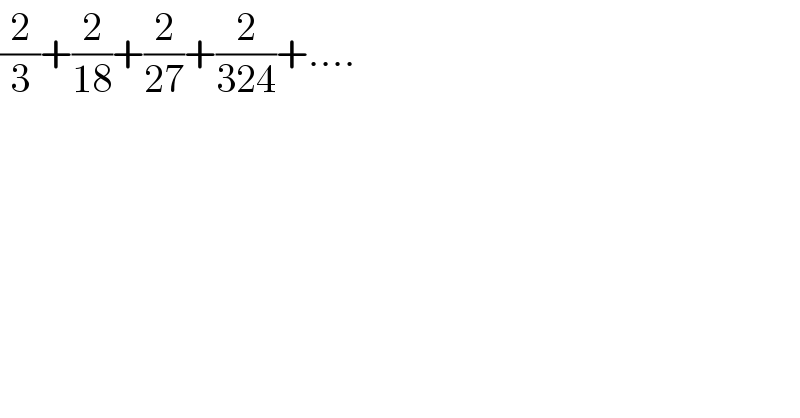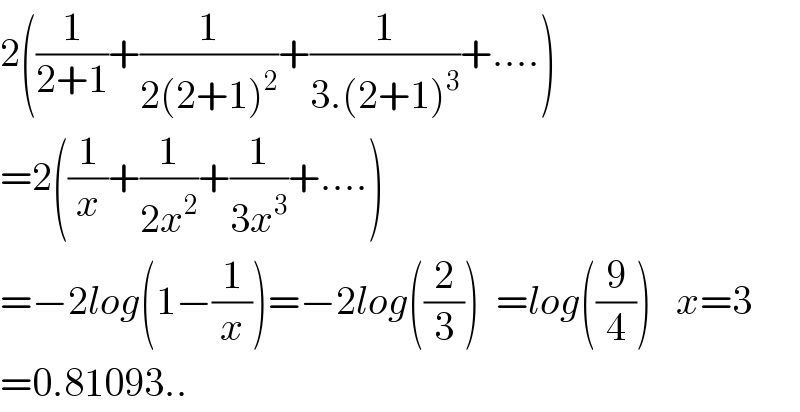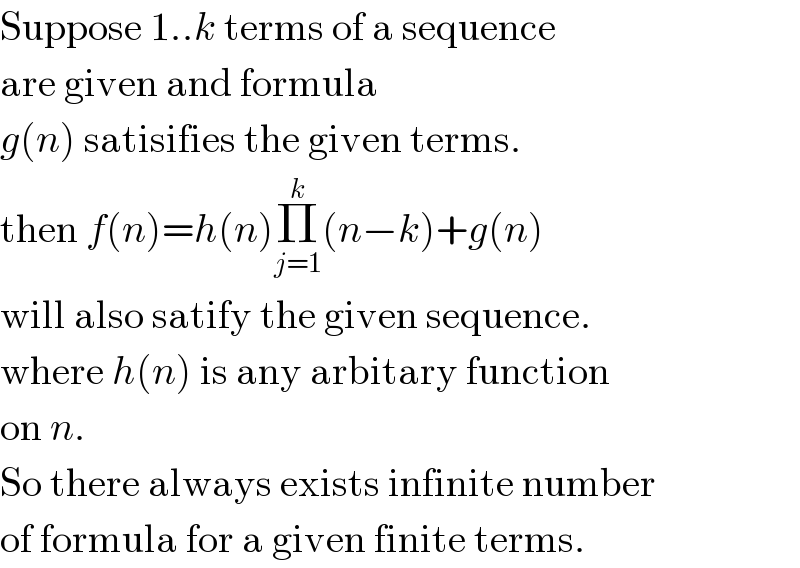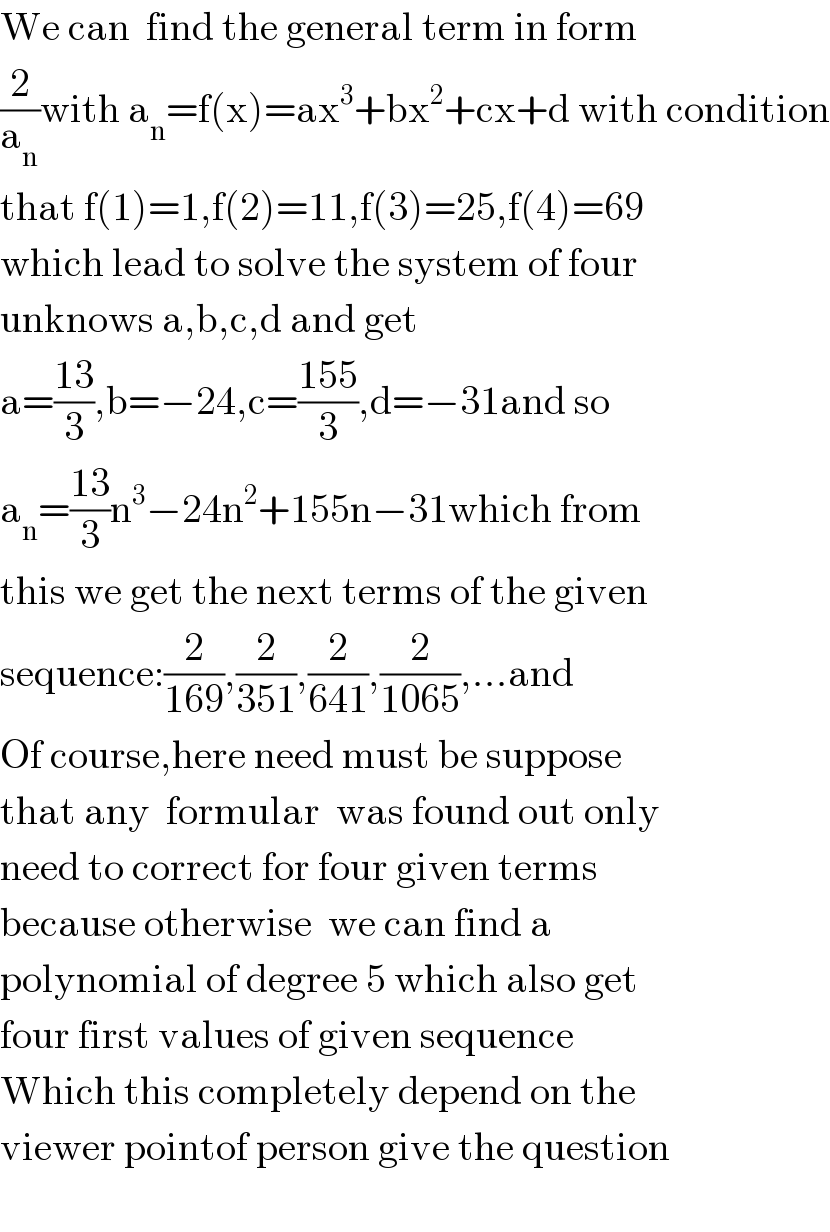
Question and Answers Forum
Question Number 106503 by Dwaipayan Shikari last updated on 05/Aug/20

Commented by Dwaipayan Shikari last updated on 05/Aug/20

Commented by Ar Brandon last updated on 05/Aug/20
I think you changed the question.�� I struggled hard to establish a general term.
Commented by mr W last updated on 05/Aug/20

Commented by Dwaipayan Shikari last updated on 05/Aug/20
Oh I had changed the question. Sorry for the inconvenience ��
Commented by Ar Brandon last updated on 05/Aug/20
��Mr W
Commented by Dwaipayan Shikari last updated on 05/Aug/20

Commented by mr W last updated on 05/Aug/20

Commented by prakash jain last updated on 05/Aug/20

Commented by Ar Brandon last updated on 06/Aug/20
��
Commented by 1549442205PVT last updated on 06/Aug/20

Commented by Ar Brandon last updated on 06/Aug/20
Wow, thanks for the knowledge Sir.
